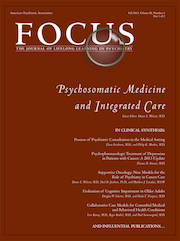Prophylaxis with Antipsychotic Medication Reduces the Risk of Post-Operative Delirium in Elderly Patients: A Meta-Analysis
Abstract
Background
Delirium commonly occurs in hospitalized elderly patients, resulting in increased morbidity and mortality. Although evidence for treatment of delirium exists, evidence supporting pharmacologic prevention of delirium in high risk patients is limited.
Objective
This review examined whether delirium in at-risk patients can be prevented with antipsychotic prophylaxis in the inpatient setting.
Data sources
A systematic literature review of articles from January 1950 to April 2012 was conducted in PubMed, Psychlnfo, and Cochrane Controlled Trials and databases.
Study selection
Five studies (1491 participants) met our inclusion criteria for analysis. Medication administered included haloperidol (three studies), risperidone (one study), and olanzapine (1 study). All five studies examined older post-surgical patients, spanning five different countries.
Data extraction
Only RCTs of antipsychotic medication used to prevent delirium were included. Key words used in the search were: “delirium,” “encephalopathy,” “ICU psychosis,” “prevention,” and “prophylaxis.” Studies had to include a validated method of diagnosing delirium. Data analysis was performed using the Metan command in Stata (Stata Corp LP, College Station, TX).
Results
The pooled relative risk of the five studies resulted in a 50% reduction in the relative risk of delirium among those receiving antipsychotic medication compared with placebo (RR(95% CI): 0.51 (0.33–0.79; heterogeneity, p < 0.01, random effects model). Examination of the funnel plot did not indicate publication bias.
Conclusions
Although few studies have examined prophylactic use of antipsychotics, this analysis suggests that perioperative use of prophylactic antipsychotics may effectively reduce the overall risk of postoperative delirium in elderly patients.
(Reprinted with permission from Psychosomatics, 2013; 54:124–131)



